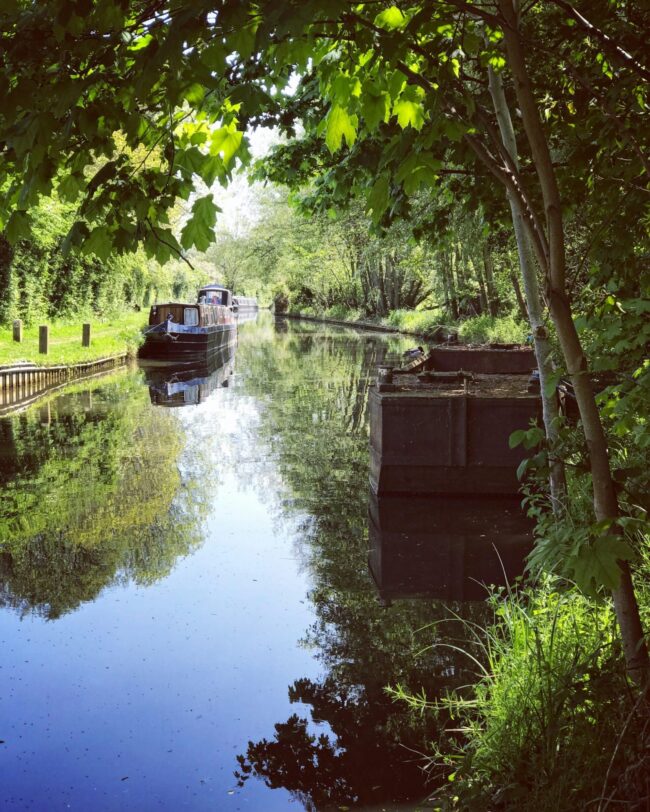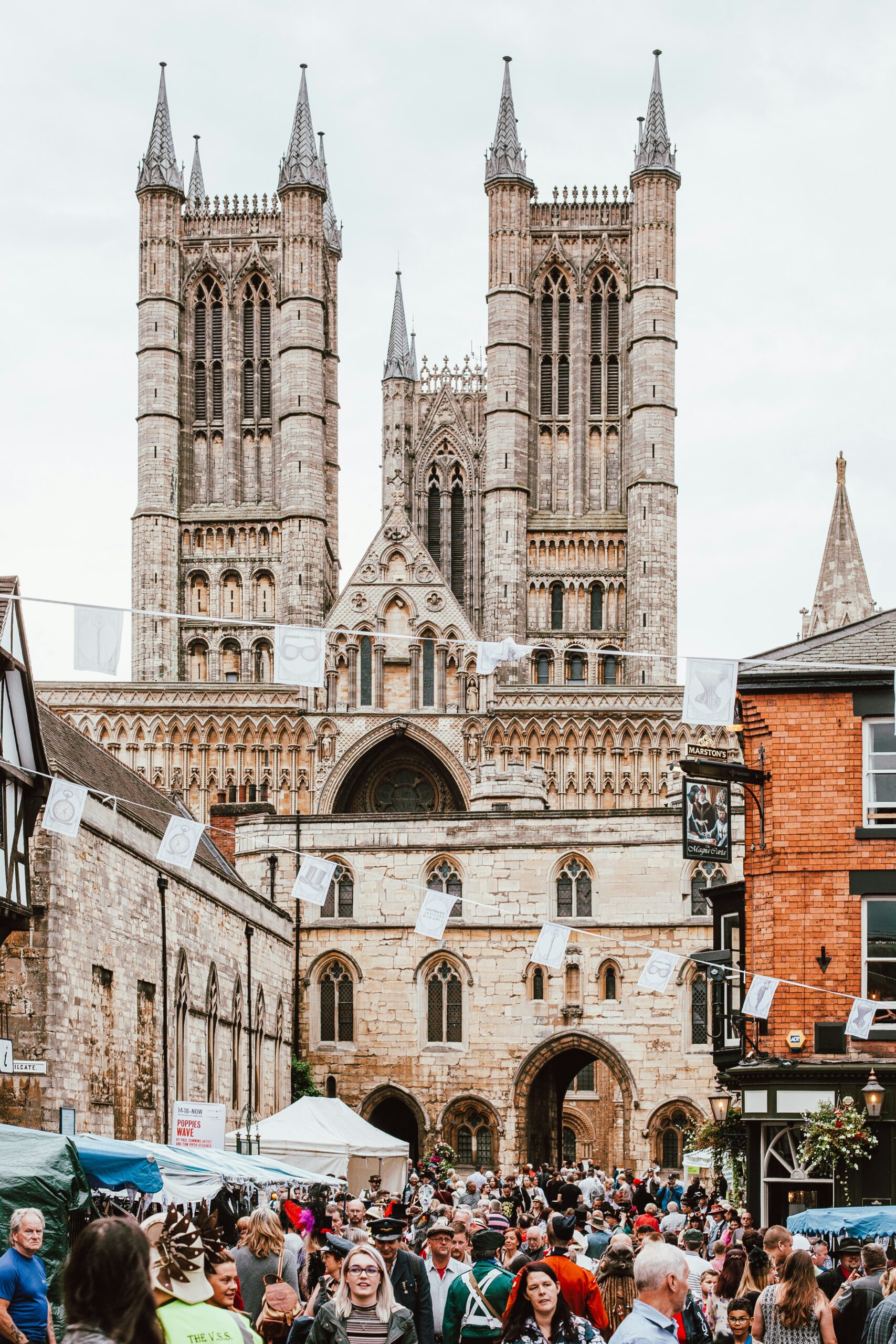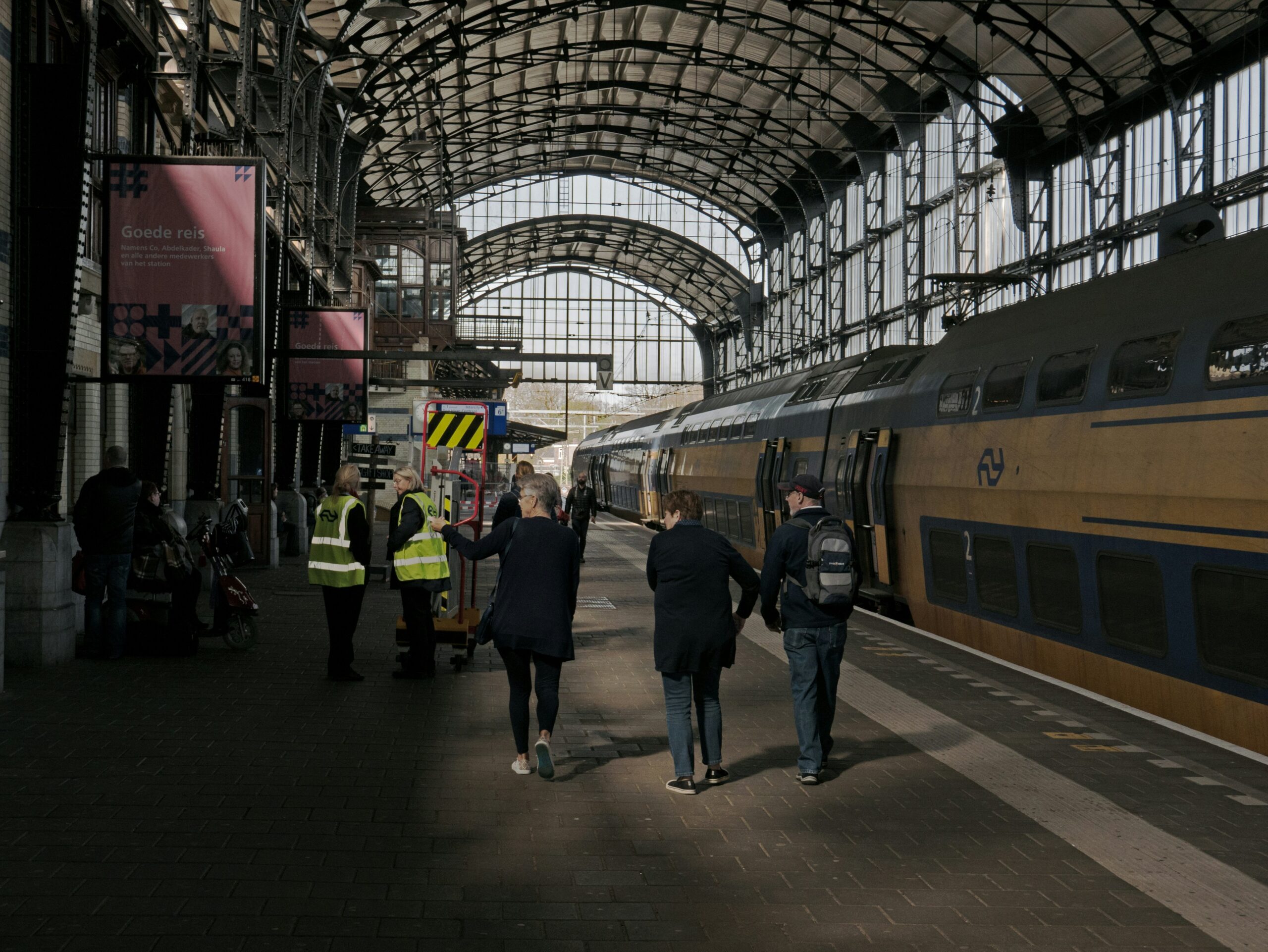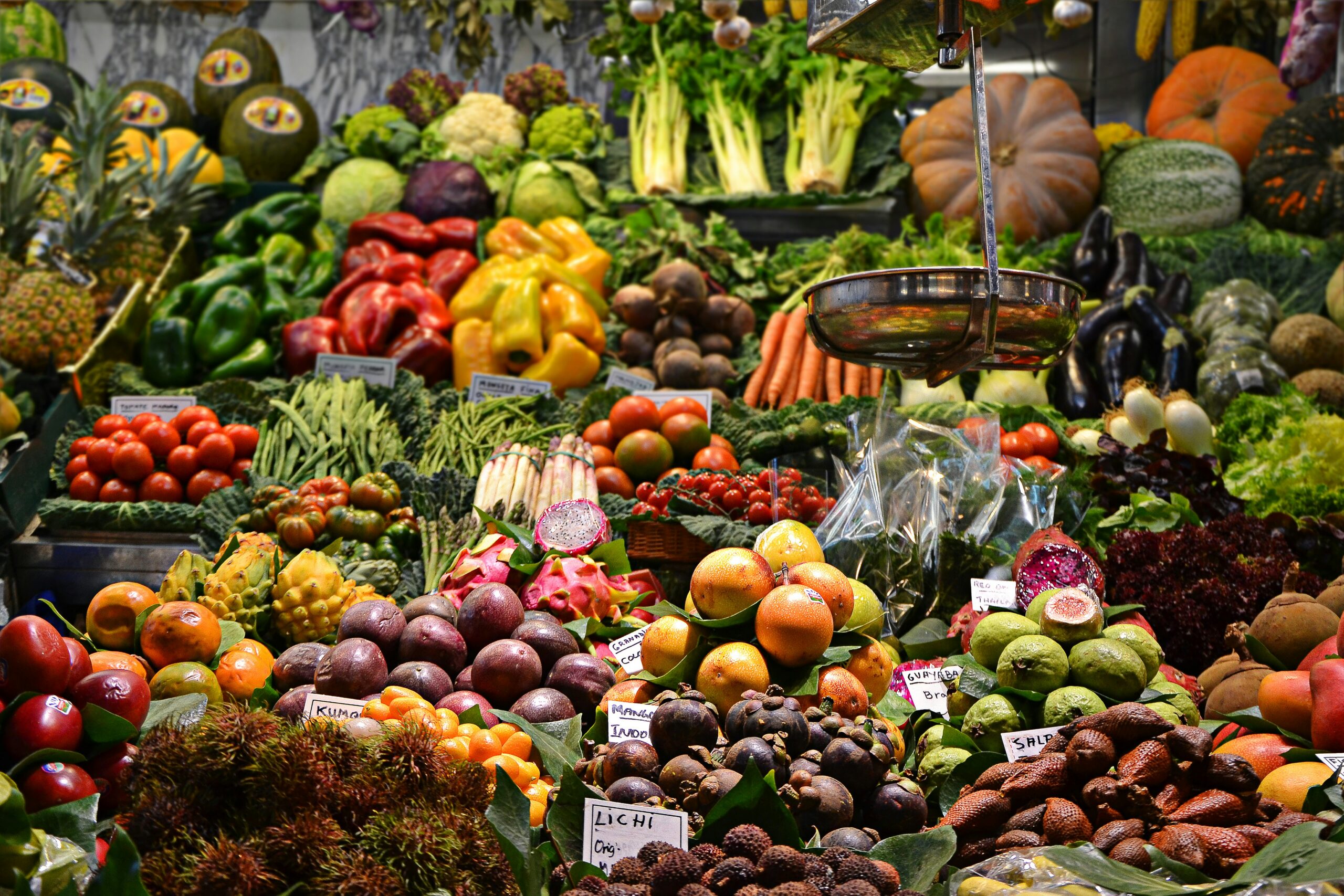Call me back
Please let us know how we can contact you and a suitable time to get in touch.

30 September 2024
We’ve gathered essential information about Louth, giving both visitors and residents a glimpse into why this town holds a special place in our hearts. The details were compiled in the latter half of 2024.
Nestled at the foot of the Lincolnshire Wolds, Louth stands as a testament to the enduring charm of England’s market towns. This picturesque settlement, with its rich history dating back to Anglo-Saxon times, has evolved into a vibrant community that seamlessly blends its historical heritage with modern amenities. From its iconic St. James’ Church, boasting the tallest medieval parish church spire in England, to its thriving independent retail scene, Louth offers a unique glimpse into the heart of Lincolnshire’s cultural and economic landscape. This comprehensive exploration delves into the many facets that make Louth a distinctive and cherished locale, from its geographical setting and architectural marvels to its culinary delights and demographic makeup.
Louth’s rich history spans over a millennium, with roots tracing back to Anglo-Saxon times. The town’s name likely derives from the Old English word “hlud,” meaning loud, referring to the fast-flowing River Lud that runs through it.
Anglo-Saxon Origins
An Anglo-Saxon pagan burial ground, dating from the fifth to sixth centuries, was discovered northwest of Louth. Excavated in 1946, it is one of England’s largest Anglo-Saxon cremation cemeteries, containing an estimated 1,200 burials.
Medieval Period
By the time of the Domesday Book in 1086, Louth had grown into a significant settlement with 124 households. The town’s importance grew in 1139 when Bishop Alexander of Lincoln founded Louth Park Abbey, a daughter-house of the Cistercian Fountains Abbey in Yorkshire.
Tudor Era and the Lincolnshire Rising
Louth played a pivotal role in the Lincolnshire Rising of 1536, which began at St. James’ Church on October 1st. This event marked the start of the largest rebellion in Tudor England, known as the Pilgrimage of Grace. The uprising was a response to Henry VIII’s religious reforms and the dissolution of monasteries. Led by local leaders, including Nicholas Melton (known as “Captain Cobbler”), the rebellion quickly gained support, with an estimated 30,000 people joining the cause.
18th and 19th centuries
Throughout the 18th and 19th centuries, Louth continued to prosper as an important market town. The late 1700s saw the establishment of a carpet-making industry, which significantly boosted the local economy. In 1770, the opening of a canal further enhanced trade and transportation, marking a new era of economic growth for the town.
The 19th century brought a series of significant developments to Louth. In 1825, an act of parliament established a body to pave and clean the streets, improving the town’s infrastructure and sanitation. The following year, in 1826, gas lighting was introduced to the streets, modernizing the town’s appearance and safety. A major milestone was reached in 1848 when the railway arrived in Louth, though this advancement eventually led to the decline of the canal. The town’s growth continued with the opening of a cemetery in 1855, addressing the needs of the expanding population. In 1873, Louth saw another important addition with the construction of a hospital, enhancing the town’s healthcare facilities.
Louth’s evolution continued into the 20th century. The year 1907 saw the opening of Hubbard’s Hills to the public, providing a beautiful recreational space for residents. In 1910, the Louth Museum was founded, preserving and showcasing the town’s rich history. A devastating flood struck the town in 1920, resulting in 23 deaths, marking a tragic event in Louth’s history. A year later, in 1921, a War Memorial was erected to honour the casualties of World War I. The town’s infrastructure continued to improve, with streets beginning to be lit by electricity in 1935. During World War II, Louth suffered losses, with 15 people killed by German bombing, leaving an indelible mark on the town’s wartime experience.
Throughout its history, Louth has maintained its character as a market town while adapting to changing times. Its rich heritage is still evident in its Georgian and Victorian architecture, historic landmarks like St. James’ Church, and its continued importance as a hub for the surrounding rural area.
Louth is strategically situated at the foot of the Lincolnshire Wolds where they meet the Lincolnshire Marsh. This unique location provides the town with a diverse landscape, combining rolling hills with flat marshlands.
Topography
The town developed at a crucial point where the ancient trackway along the Wolds, known as the Barton Street, crossed the River Lud. This intersection of natural features and human pathways played a significant role in Louth’s growth and importance.
River Lud
The River Lud is a central geographical feature of Louth. It meanders through a gorge carved into the Wolds before entering the town. The river’s name is believed to be the origin of the town’s name, with “Louth” likely derived from the Old English word “hlud,” meaning loud, referring to the fast-flowing nature of the River Lud.
Hubbard’s Hills
To the east of the town lies Hubbard’s Hills, a picturesque valley with the River Lud flowing through it. This area was formed from a glacial overspill channel during the last glacial period, creating a unique and attractive landscape. Hubbard’s Hills is now a popular park and recreational area for residents and visitors alike.
Surrounding Areas
Louth is surrounded by several villages and towns:
Larger towns in proximity to Louth include Wragby, Market Rasen, Horncastle, Mablethorpe, Grimsby, and Alford.
Greenwich Meridian
An interesting geographical feature of Louth is that the Greenwich Meridian passes through the town. This is marked on Eastgate with plaques on the north and south sides of the street, just east of the junction with Northgate. However, it’s worth noting that this location is known to be slightly incorrect, as the actual line passes through a point just west of Eastgate’s junction with Church Street.
Transportation Geography
Louth’s geography has influenced its transportation infrastructure. The town was formerly an important railway junction, serving as the northern terminus of the Mablethorpe Loop and the terminus of the Louth to Bardney Line. Today, the A16 Louth Bypass, opened in 1991, is a significant road infrastructure feature, altering the town’s accessibility and traffic flow.
This diverse geography, combining the Wolds, the Marsh, rivers, and historical pathways, has shaped Louth’s development and continues to influence its character as a market town and regional centre.

Louth boasts a rich architectural heritage that spans several centuries, showcasing a variety of styles from medieval to Georgian and Victorian. The town’s well-preserved historic core offers a glimpse into its architectural evolution and economic prosperity over time.
St. James’ Church
The crown jewel of Louth’s architecture is undoubtedly St. James’ Church, a magnificent example of late medieval ecclesiastical design. Built primarily in the Perpendicular Gothic style, the church dates back to approximately 1430. Its most striking feature is the towering spire, added between 1501 and 1515, which rises to an impressive height of approximately 88 meters, making it the tallest medieval parish church spire in England. The spire not only dominates Louth’s skyline but also serves as a testament to the town’s wealth and ambition in the early 16th century.
Georgian and Victorian Buildings
Louth’s prosperity in the 18th and 19th centuries is reflected in its abundance of Georgian and Victorian architecture. The town centre features numerous well-preserved examples of these styles, characterized by symmetrical facades, sash windows, decorative cornices and mouldings, elegant doorways with fanlights
Many of these buildings now house shops, restaurants, and other businesses, contributing to Louth’s charming and historic atmosphere.
Another notable architectural landmark is The Priory, which includes a mausoleum and Gothic ruin designed by Thomas Espin around 1812-1818. The mausoleum showcases the Gothic style, popular in the early 19th century, with features such as:
Adjacent to the mausoleum is a Gothic ruin constructed from salvaged masonry from the former Town Hall and the ruins of the 12th-century Louth Park Abbey, providing a tangible link to the town’s medieval past.
Louth’s mid-19th century Town Hall is an imposing structure that exemplifies the civic architecture of its time. It features a grand ballroom and houses a Compton theatre organ, reflecting the building’s importance in the town’s social and cultural life. The organ is a significant musical instrument with a rich history. Originally installed in the Queens Hall Cinema in Grimsby in 1935 at a cost of £6000, it started as a 2-manual, 5-rank organ. After being damaged by floods in the 1950s, it was purchased as scrap in 1972 by the North Lincolnshire Theatre Organ Preservation Society. The organ was restored and installed in Louth Town Hall in 1975, taking a year to complete.
Preservation and Heritage
Louth has managed to retain much of its historical architectural fabric, avoiding large-scale post-war redevelopment that affected many other English towns. This preservation of its architectural heritage has contributed significantly to Louth’s charm and appeal as a historic market town.
The town’s commitment to its architectural heritage is evident in the ongoing restoration and maintenance of its historic buildings. For example, St. James’ Church has undergone several restorations over the centuries, including work in the 19th and 20th centuries, to ensure its preservation for future generations.
Louth’s diverse and well-preserved architecture, from its medieval church to its Georgian and Victorian streetscapes, provides a visual narrative of the town’s history and development, making it a noteworthy destination for those interested in English architectural heritage.
Louth’s economy is characterized by a diverse mix of industries, with a strong emphasis on independent businesses and local production. The town has managed to maintain its character as a traditional market town while adapting to modern economic trends.
Independent Retail
One of Louth’s most notable economic features is its thriving independent retail sector. Approximately 70% of businesses in the town are independently owned, which contributes significantly to its unique character and appeal. This high proportion of independent retailers has helped Louth earn recognition, including being named ‘Britain’s Favourite market town’ by the BBC’s Countryfile in 2012.
Food and Agriculture
The food sector plays a crucial role in Louth’s economy, contributing significantly to its reputation as a culinary destination. The town is renowned for its specialist grocers, butchers, and food retailers, offering a diverse range of high-quality local produce. Local producers have gained national recognition for their excellence, with Meridian Meats winning numerous awards for their products. The Cheese Shop, another local gem, has been featured in prestigious national publications such as The Daily Telegraph and The Guardian, further cementing Louth’s status as a food lover’s paradise.
The town’s commitment to local produce and traditional market culture is evident in its regular markets. Louth hosts weekly markets on Wednesdays, Fridays, and Saturdays, providing residents and visitors with fresh, locally sourced goods. Additionally, a monthly farmers’ market takes place, showcasing the best of the region’s agricultural bounty and artisanal products.
While the food sector is a standout feature of Louth’s economy, the town has a diverse industrial history. Louth has been home to various industries over the years, including:
Service Sector
The service sector, particularly related to tourism, has become an increasingly important part of Louth’s economy. The town’s well-preserved Georgian and Victorian architecture attracts history enthusiasts and heritage tourists. Key attractions such as St. James’ Church and Hubbard’s Hills draw visitors from near and far. To cater to this influx of tourists, Louth has developed a thriving hospitality sector, with a variety of cafes, restaurants, and accommodation options serving both visitors and locals.
Looking to the future, Louth’s employment outlook appears positive. Recent forecasts suggest that employment opportunities in the town are expected to grow by 16% during 2024, following a 30% decline in opportunities in 2023. Sectors anticipated to see strong demand include accounting, insurance, engineering, science, construction, cybersecurity, and social care.
However, Louth’s economy is not without its challenges. The closure of long-standing businesses, such as Eve and Ranshaw after 240 years of operation, highlights the difficulties faced by traditional retailers. Nevertheless, the town has demonstrated economic resilience through its ability to attract new businesses to fill vacant premises.
Louth’s future economic development is focused on enhancing existing assets and leveraging its strategic location. There are ongoing efforts to improve the Louth Navigation Canal, which could potentially boost tourism and recreational activities. Furthermore, the town’s position on the Dublin-Belfast Economic Corridor and its proximity to major urban centres provide opportunities for future growth and development.
Louth’s economy benefits from a unique blend of traditional market town characteristics and adaptability to modern economic trends. Its focus on independent businesses, local production, and quality of life continues to be a key driver of its economic success, positioning the town well for future prosperity.

Louth, despite its small size, boasts a vibrant cultural scene and hosts numerous events throughout the year, showcasing its rich heritage and community spirit. The town’s cultural calendar reflects its character as a traditional market town that embraces both its heritage and contemporary interests, catering to diverse tastes and making Louth a culturally rich destination year-round.
Markets and fairs form a cornerstone of Louth’s cultural identity. Regular markets are held on Wednesdays, Fridays, and Saturdays, offering a variety of local produce and goods. A monthly farmers’ market takes place on the fourth Wednesday of each month, featuring fresh local produce. The town also hosts thriving Victorian and Christmas Sunday Markets, which attract thousands of visitors and add to the festive atmosphere.
The Louth Food and Drink Festival is an annual event that celebrates the town’s culinary heritage. This year the festival will be held on Sunday, 29th September, from 10am to 4pm. It features over 60 stands showcasing local producers. The festival includes:
This event is part of a broader initiative to promote Louth’s reputation as a food lover’s paradise.
Named after Louth’s position on the Greenwich Meridian, the Zero Degrees Festival celebrates the town’s unique geographical location. It’s an annual celebration of arts, music, dance, and comedy that takes place in various venues around the historic market town of Louth, Lincolnshire. The Zero Degrees Festival in Louth did not take place in 2024. Instead, the organizers are using this year as a fallow period to regroup and plan for a bigger comeback in 2025.
Hubbard’s Hills serves as a venue for various family events throughout the year. These events likely take advantage of the natural beauty of the area and provide outdoor recreational opportunities for residents and visitors.
Local Arts
The arts scene in Louth is vibrant and diverse. The Riverhead Theatre, run by Louth Playgoers, offers a range of performances throughout the year and features an art gallery showcasing local artists monthly. Music and concerts are held at various venues, including the Town Hall, contributing to a lively nightlife. Louth also maintains a local cinema, providing entertainment for residents and visitors alike.
Louth Museum plays a significant role in preserving and showcasing the town’s history. It hosts exhibitions and events related to local history and features a unique Panorama Gallery, showcasing replicas of William Brown’s 1844 Panorama of Louth.
Seasonal celebrations are an important part of Louth’s cultural calendar. The Christmas Market this year will be held on Sunday 8th December, is a major event featuring around 90 traders and organizations, adding to the festive spirit of the town.
It’s likely that Louth, like many market towns, hosts local sporting events and competitions, contributing to the community’s active lifestyle and social calendar. This rich tapestry of events and cultural offerings demonstrates Louth’s commitment to preserving its heritage while embracing contemporary interests, making it a dynamic and engaging place to live and visit.
Louth has a long-standing tradition of providing quality education, with a range of institutions catering to various age groups and educational needs.
Primary Education
Louth offers several primary schools to serve its younger population:
These schools provide a strong foundation for children’s education, with many receiving positive Ofsted ratings.
Secondary Education
The town’s main secondary school is King Edward VI Grammar School, locally known as “KEVIGS”. This school has a rich history and strong academic reputation:
Further Education
For post-16 education, Louth offers several options:
These institutions provide A-level courses, vocational qualifications, and other further education opportunities.
Special Educational Needs
Louth is home to St. Bernard’s School, a special school catering to students with moderate to severe learning difficulties. This school serves children and young people aged 2-19, providing specialized education and support.
Adult Education
While specific details are limited in the search results, many market towns like Louth typically offer adult education courses through community centers or local colleges. These might include:
Educational Support Services
Louth has educational support services, such as:
Libraries

Louth Library, operated by Lincolnshire County Council, plays a crucial role in supporting education in the town. It offers a comprehensive range of resources and services to the community. Patrons have access to an extensive collection of books and digital resources, providing a wealth of information for learners of all ages. The library also provides dedicated study spaces, allowing students and researchers a quiet environment to focus on their work. Additionally, the library offers computer and internet access, ensuring that all members of the community have the opportunity to engage with digital resources and online learning platforms. To further enhance its educational role, the library hosts various educational programs and events throughout the year, catering to diverse interests and age groups.
In terms of historical education, Louth Museum makes significant contributions to the town’s educational landscape. The museum curates engaging exhibitions on local history, offering visitors insights into Louth’s rich past. It also develops and delivers educational programs specifically designed for schools, helping to bring local history to life for young learners. Furthermore, the museum serves as a valuable resource center for local history research, providing access to archives, documents, and artifacts that support in-depth study of the area’s heritage.
The education system in Louth provides a comprehensive range of options from early years through to further education, with a mix of state and independent schools. The town’s educational institutions not only serve the local population but also attract students from surrounding areas, contributing to Louth’s reputation as an educational centre in the region.

Louth, despite being a small market town, has a variety of transportation options connecting it to nearby cities and villages. However, the town has seen significant changes in its transportation infrastructure over the years.
Bus Services
Louth is well-served by regular bus services:
Louth benefits from the CallConnect service, an on-demand bus service operating six days a week:
Railway
While Louth no longer has an active railway station, it has a rich railway history:
Coach Services
Louth is on two significant National Express coach routes:
Road Infrastructure
Historical Transportation
The transportation landscape in Louth has evolved significantly over time, from its days as a railway hub to its current reliance on bus and road networks. While the loss of rail connections has been significant, ongoing improvements to bus services and potential future rail developments suggest a commitment to maintaining and enhancing Louth’s connectivity.
Louth offers several parks and recreational areas for residents and visitors to enjoy, combining natural beauty with opportunities for leisure activities. The crown jewel of Louth’s green spaces is undoubtedly Hubbard’s Hills, a picturesque public park and nature reserve that opened to the public in 1907. This stunning landscape was formed by a glacial overspill channel during the last ice age, over 40,000 years ago, creating a unique and attractive setting.
Hubbard’s Hills features the River Lud meandering through a deep, flat valley bottom, surrounded by steep, wooded slopes on either side. It has become a popular destination for picnics, walks, and paddling in the stream during warmer months. The park also includes an Edwardian-style café, adding to its charm and providing refreshments for visitors.
While Hubbard’s Hills is the most prominent park, Louth has other spaces that contribute to its recreational offerings. For instance, the town maintains a local cinema, providing entertainment for residents and visitors alike. Various venues throughout Louth host cultural and sporting events, which include outdoor activities in park settings.
The town’s strong market tradition and food festivals do provide opportunities for outdoor gatherings and community engagement. These events often take place in public spaces, contributing to the town’s vibrant outdoor culture.
Louth boasts several significant landmarks that showcase its rich history and architectural heritage. These landmarks offer visitors and residents alike a glimpse into the town’s rich past and vibrant present.
St. James’ Church
The crown jewel of Louth’s landmarks is undoubtedly St. James’ Church. Built between 1430 and 1440, it features a magnificent spire completed in 1515. At 88m, it has the tallest medieval parish church spire in England. The church played a crucial role in the Lincolnshire Rising of 1536 and houses a stone cross dating back to c. 950, discovered in 2015. Visitors can enjoy stunning views of the town and surrounding countryside from its tower.
Hubbard’s Hills
Hubbard’s Hills is a landmark not to be missed. A stunning public park and nature reserve that offers a perfect setting for picnics, walks, and paddling in the stream.
Louth Museum
An award-winning visitor attraction, Louth Museum was designed by John James Cresswell in 1910. It houses the Panorama Gallery with replicas of William Brown’s 1844 Panorama of Louth. The museum’s exhibits include local geology, archaeology, and industrial history, as well as the largest national collection of Victorian woodcarvings by Thomas Wilkinson Wallis.
Other Notable Landmarks
King Edward VI Grammar School is a historic educational institution that educated notable figures like Alfred Lord Tennyson and Arctic explorer Sir John Franklin. It features a commemorative plaque on Schoolhouse Lane.
Louth Cemetery, opened in 1855, is a Victorian-era burial ground featuring a distinctive gate lodge. This peaceful final resting place reflects the funerary customs and architectural styles of its time.
These landmarks collectively represent Louth’s architectural, historical, and cultural heritage, making it a destination of significant interest for history enthusiasts.

Louth has earned a reputation as a foodie’s paradise, offering a diverse range of culinary experiences that showcase both local specialties and international flavours.
Local Specialties
Louth is known for its traditional Lincolnshire delicacies:
Markets and Food Festivals
Independent Food Shops
Cafés and Restaurants
Pubs and Breweries
Unique Food Experiences
Louth’s food scene is characterized by its emphasis on local, high-quality produce and independent businesses. The town’s markets, food festival, and diverse range of eateries make it a destination for food lovers, offering everything from traditional Lincolnshire fare to international cuisines and specialty products.
Louth has experienced significant population growth in recent years, reflecting its status as an important market town in Lincolnshire. According to the 2021 Census, Louth’s population reached 17,429, representing a growth of approximately 7% from the 2011 Census figure of 16,290. This continued a trend of steady growth, as the population in 2001 was 15,810.
The age distribution in Louth as of the 2021 Census shows a relatively balanced community. The largest group is the working-age population (18-64 years), comprising 55.5% of the total at 9,677 individuals. The younger population (0-17 years) accounts for 20.2% with 3,469 individuals, while the senior population (65+ years) makes up 24.3% with 4,240 residents.
Gender distribution in Louth is fairly balanced, with a slight majority of females. The 2021 Census recorded 8,324 males (47.7%) and 9,113 females (52.3%), resulting in a gender ratio of approximately 97 males for every 100 females.
Ethnically, Louth remains predominantly White, with this group accounting for 97.6% of the population (17,003 individuals). However, the town is seeing growing diversity:
The vast majority of Louth’s residents (96.1% or 16,740 individuals) were born in the UK, with 2.0% (349 individuals) born in EU countries and another 1.9% born in other countries.
Louth’s religious landscape is shifting, reflecting broader national trends. While Christianity remains the largest religious group at 51.3% (8,351 individuals), a significant portion of the population (47.3% or 7,697 individuals) now identifies as having no religion. Other religious groups include Muslims (0.4% or 62 individuals) and other religions (0.5% or 79 individuals).
These demographics paint a picture of Louth as a growing, predominantly White British town with a balanced age distribution. The town is experiencing gradual diversification and shifts in religious affiliation, mirroring broader national trends.
Louth offers a variety of sports and recreational activities for residents and visitors, catering to diverse interests and age groups. The Meridian Leisure Centre serves as a hub for fitness enthusiasts, featuring an 8-lane, 25m swimming pool, a leisure pool with interactive features and a flume, and an 80-station fitness suite. This modern facility provides a range of options for those looking to stay active and healthy.
For outdoor sports enthusiasts, Louth boasts several facilities:
The town also has a strong sporting tradition, particularly in cricket. Louth Cricket Club plays a prominent role in local sports, offering opportunities for both competitive play and casual enjoyment.
Despite its small size, Louth maintains a vibrant local media scene that keeps residents informed about town affairs and fosters community engagement. The Louth Leader, a local weekly newspaper, serves as a primary source of information, providing comprehensive coverage of news, sports, and community events in Louth and the surrounding areas.
For those preferring digital media, Lincolnshire Live offers an online platform with a dedicated Louth section, providing up-to-date information on local issues and events. This digital presence ensures that residents have access to timely news and information.
The town’s official communication channels include:
These platforms play a significant role in community communication, allowing for real-time updates and interactions among residents.
Louth, situated within the Lincolnshire Wolds Area of Outstanding Natural Beauty, has been making strides in environmental conservation and sustainability. The town’s commitment to preserving its natural surroundings is evident in various initiatives and ongoing projects.
One significant environmental feature is the Louth Navigation Canal. While no longer operational for transportation, efforts are ongoing to maintain it as a valuable ecological corridor and recreational space. This project not only preserves a piece of Louth’s industrial heritage but also contributes to local biodiversity and provides a green space for residents and visitors alike.
The town’s commitment to sustainability is also reflected in its approach to food and agriculture:
Louth’s dedication to preserving its architectural heritage also contributes to sustainability by repurposing historic buildings rather than demolishing them. This approach not only maintains the town’s character but also reduces waste and energy consumption associated with new construction.
These initiatives, combined with the town’s natural setting and historical approach to development, position Louth as a community that values environmental stewardship alongside economic growth and cultural preservation.
As we conclude our journey through Louth, it becomes evident that this market town is far more than a dot on the map of Lincolnshire. It is a living, breathing community that has successfully navigated the challenges of modernization while preserving its historical essence. Louth’s ability to maintain its character as a traditional market town, coupled with its adaptability to contemporary trends, positions it as a model for sustainable small-town development. From its diverse economy dominated by independent businesses to its rich cultural calendar and commitment to education, Louth embodies the resilience and spirit of England’s rural communities. As it continues to evolve, Louth remains a testament to the enduring appeal of market towns in the 21st century, offering residents and visitors alike a unique blend of history, culture, and modern living.
Please let us know how we can contact you and a suitable time to get in touch.